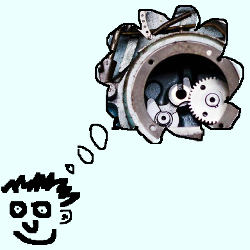This is a follow-up post to a previous article I wrote: “Should I become a Programmer?” I'd like to address a couple of the comments I received about that article and try to make my message a little clearer.
Comment: "I wonder how many people make major life decisions by running through a checklist found on some random blogger's website."
The implication that someone could, or that someone would make a major life decision on the basis of some crude examples by running through a checklist found on some random blogger's website suggests simultaneous views that one who would make such a life decision is not bright enough to research further than a random blogger's list of examples, yet bright enough to comprehend the meaning of such a list and indeed pursue a career as a programmer. Such a dichotomy, in my view, is not possible.

Comment: “Feels more like a checklist on whether to become a mechanic, it’s quite a lot of “do you like to tinker with physical objects” styled questions.”
and
Comment: “Sounds more like should I become a mechanic LOL”
I’d equate the interest in thinking about abstract machines, and designing, programming and building such things to be more like a hands-on mechanical engineer who likes to build their designs rather than a mechanic who likes to, quote: “tinker with physical objects” but, yes I do see a similarity between the interests of mechanical and software engineers.
The message in other words?
OK, so I perhaps wasn’t as clear as I could’ve been in the previous article. The examples on the list aren’t supposed to be taken literally. They’re just some examples off the top of my head. The message I was trying to convey in that article was this:
If someone has an interest in machines (whether they be mechanical, biological, astronomical, whatever) then there’s a chance they will also be interested in “thought machines” (i.e. machines made out of code).
If someone has an interest in construction and doing things by hand (woodwork, metalwork, building engines, etc.) then there’s a chance they will also be interested in constructing “thought machines” (i.e. making their own things in code).
If someone has an interest in how stuff works (breaking things down to see how they tick, thinking about how processes work, learning a new skill in order to better understand how something is made, etc.) then there’s a chance they will also be interested in how “thought machines” and information/computing processes work (i.e. deconstructing machines built by others, or deconstruction of their own ideas into constituent parts in order to build their own machines).
Caveat lector: YMMV.
